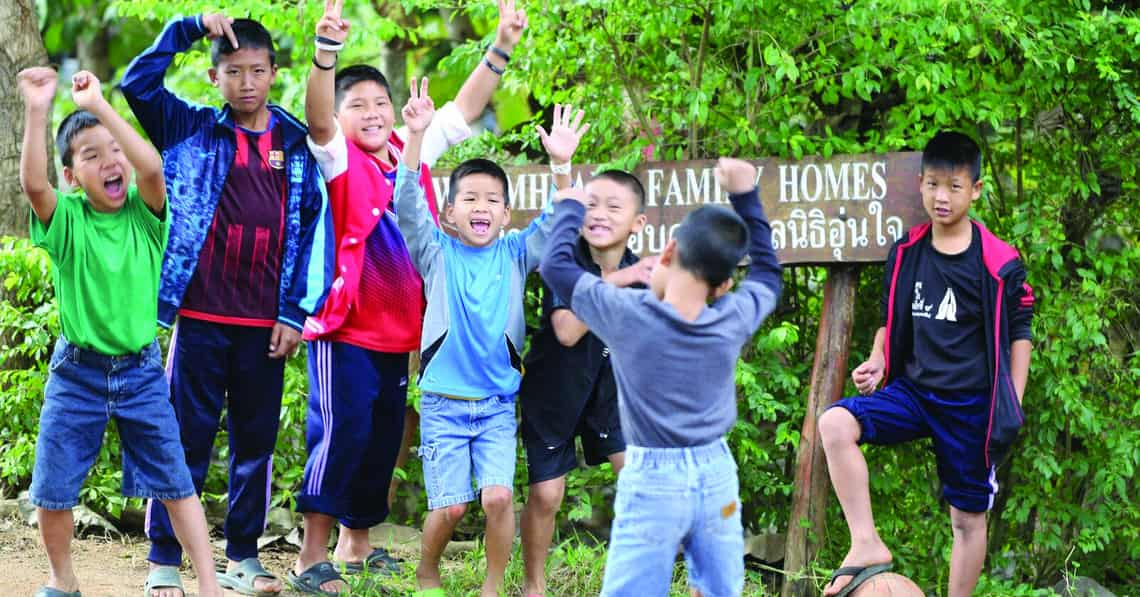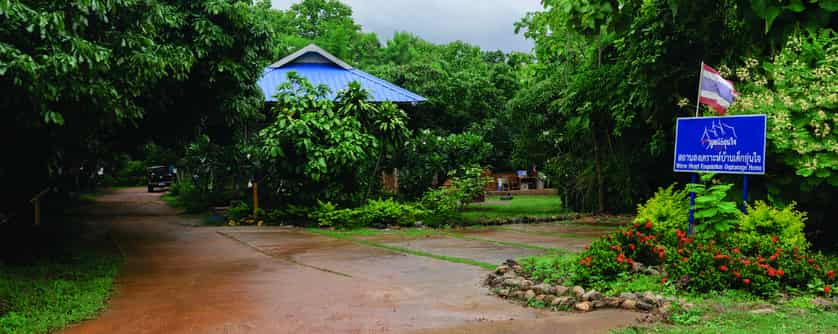
Many may know this foundation as the biochar guys, a key player in the fight against smoke, but if we step back, we see they do a lot more than biochar, which actually is just a side project. Last month marked their ten year anniversary, and we thought we’d pay Shafer and his wife Evelind Schecter a visit to find out what Warm Heart is all about.
Back when Shafer and Schecter were a much younger couple, they adopted four children from Korea, two of whom had special needs. In the first few years of their new family life, they brought in over 20 foster children and spent their days caring for those without a family of their own. After visiting a number of countries to help with relief efforts, the 2005 Christmas tsunami that hit Thailand saw Shafer come to the country for the first time, dragging along a team of environmental scientists to help repair the coral reefs and a handful of students from Rutgers University to help build housing.
“When I first stepped off the plane and took a bite of my first Thai mango, I phone Evelind immediately and said this is it,” Shafer said as he described the plan his family had to move and set up abroad. “She told me, no guns, no fences and no snow and Thailand fit the bill.”
So after a lifetime in education, both Shafer and Schecter gave up their comfortable US lifestyle to try something new, build a new career and do something positive. At the time, the couple had already set up another NGO called Global PACT in the Balkans, helping young people rebuild their lives after the genocide of the early 1990s. In 2007, Shafer organised a Global PACT training event in Mae Sai alongside a local Thai couple also involved in NGO work. It was after this meeting that they founded Warm Heart together and in less than a year they were set up and ready to go.
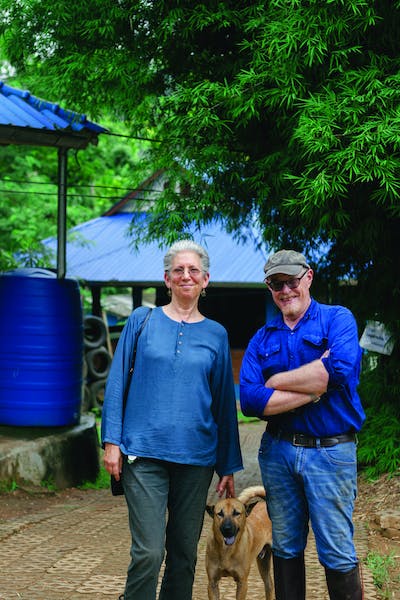
Although the brain child of this somewhat zany couple, Warm Heart Foundation is a fully Thai-run non-profit foundation with, Thai staff and board of directors. What is clear however, when visiting the foundation it is clear that the couple are the real ‘mother’ an‘father’ figures on campus.
“We spent the first year talking with members of the local communities and identified the Children’s Home as the first priority,” explained Schecter. “There were many hill-tribe children from ethnic minority villages that had no school so they often came down to the valley to study.” Because the children couldn’t speak Thai, they were often left behind in schools while also struggling to find places to stay after the closure of hilltribe children’s homes by the government to ‘boost educational performance’.
Today, Warm Heart Foundation’s main operation is providing a safe, extended family environment for children from low income, disrupted families. Although registered as an orphanage for Thai legal social care reasons, all of their children have homes and families that they often return to. “Only a handful of our kids don’t go home because it is too dangerous for them,” clarified Shafer. “In those cases, we try to take the kids up to their local village so they at least have the ability to connect with their cultures and traditions. Some kids never want to return home, while others visit every weekend, it really varies.”
In addition to taking care of 43 children aged four to 18, they also assist around 20 young adults who have left the nest to study in vocational colleges and universities. They also pay room and board over the weekends for 25 students at a nearby primary school for hilltribe children.
“One of our main principles is communicating with the locals,” said Shafer. “Time and time again we see charities come in and try to fix a problem, only to pack up once the money has dried up, leaving a community of people dependent on a service that is no longer available. That’s why we are in this for life.” After improving educational outcomes for children, the people in the community told them that jobs were the second most important thing to a good life. So, following the wishes of the people that matter, they set up a microenterprise programme that targeted job creation. Now there are a large number of families growing coffee (helping not only create income but supports reforestation efforts too) or creating artisanal produces using silk and dyes produced by local women’s cooperatives.
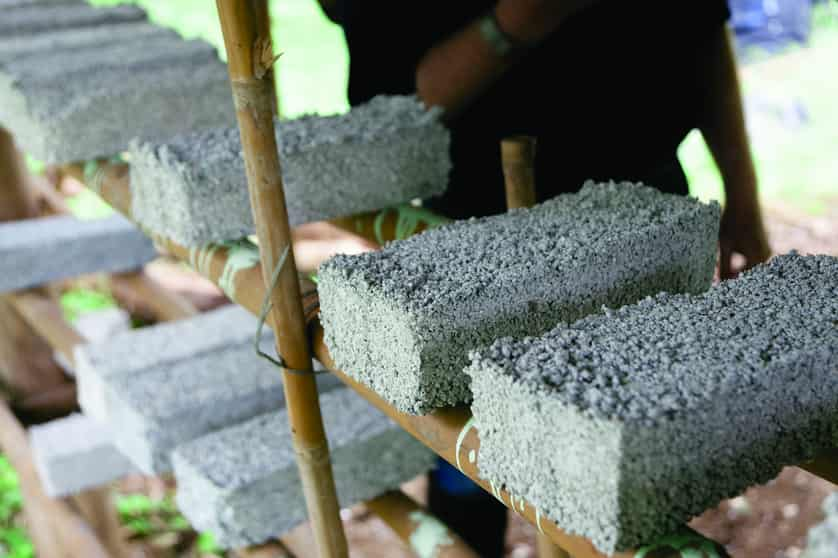
Polystyrene bricks
After jobs were created and children cared for, the near superhuman couple embarked on yet another project to help create a safety net for the elderly and disabled in the area. “Our district is well equipped with public health clinics, but many are unable to make use of them,” Schecter explained. “Many people don’t even need actual medical care, just human contact. That’s what we provide.” In addition to visiting the elderly and disabled, they also transport people to the hospital when needed and help buy food or medicine when their meagre stipends run dry. They have even teamed up with Engineers Without Borders for clean water projects and the Wheel Chair Project to help mobilise the disabled.
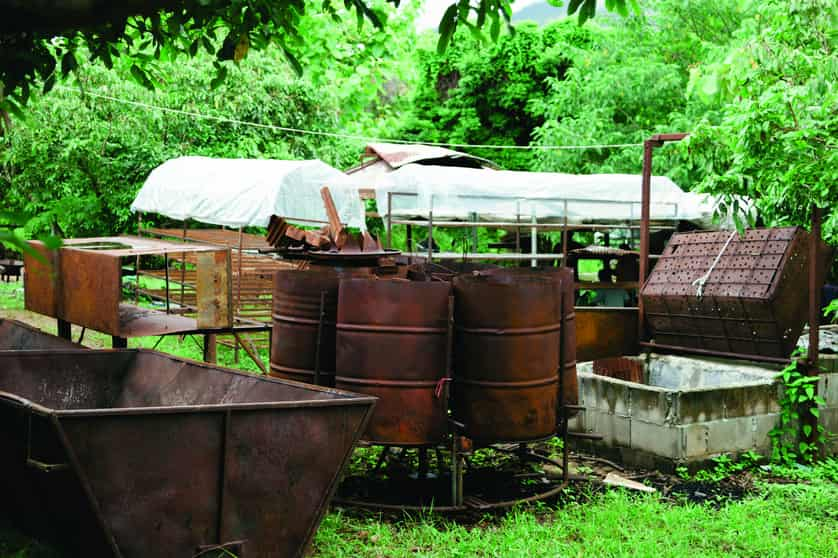
Biochar furnaces
They do all this while caring for a family of almost sixty (including staff and volunteers) and while creating biochar ovens and promoting sustainable agriculture, educating farmers, organising recycling projects and innovating novel ways to make use of waste that would otherwise be sent to landfill. “We found a way to grind up polystyrene foam and mix it with cement to create lightweight, insulating bricks,” beamed Schafer who seems to be a never ending creator and implementer of novel ideas. “I’m currently in the process of building a new office made from these bricks to prove that they are safe and durable.” If it works, they hope to build an eco-centre that aims to bring together locals and international students to tackle big environmental concerns together in a carbon footprint-free space.
This year marks their 10th anniversary, and now with some of their children growing up and moving on, their hard work is beginning to bear visible fruit. “Caring for children is a black hole, financially speaking,” laughed Schafer. “At the end of the day, they are our number one priority, and whatever happens, we can’t let them down. If we can’t afford to maintain our other projects then we’ll cancel everything, but we’ll never abandon our children.”
